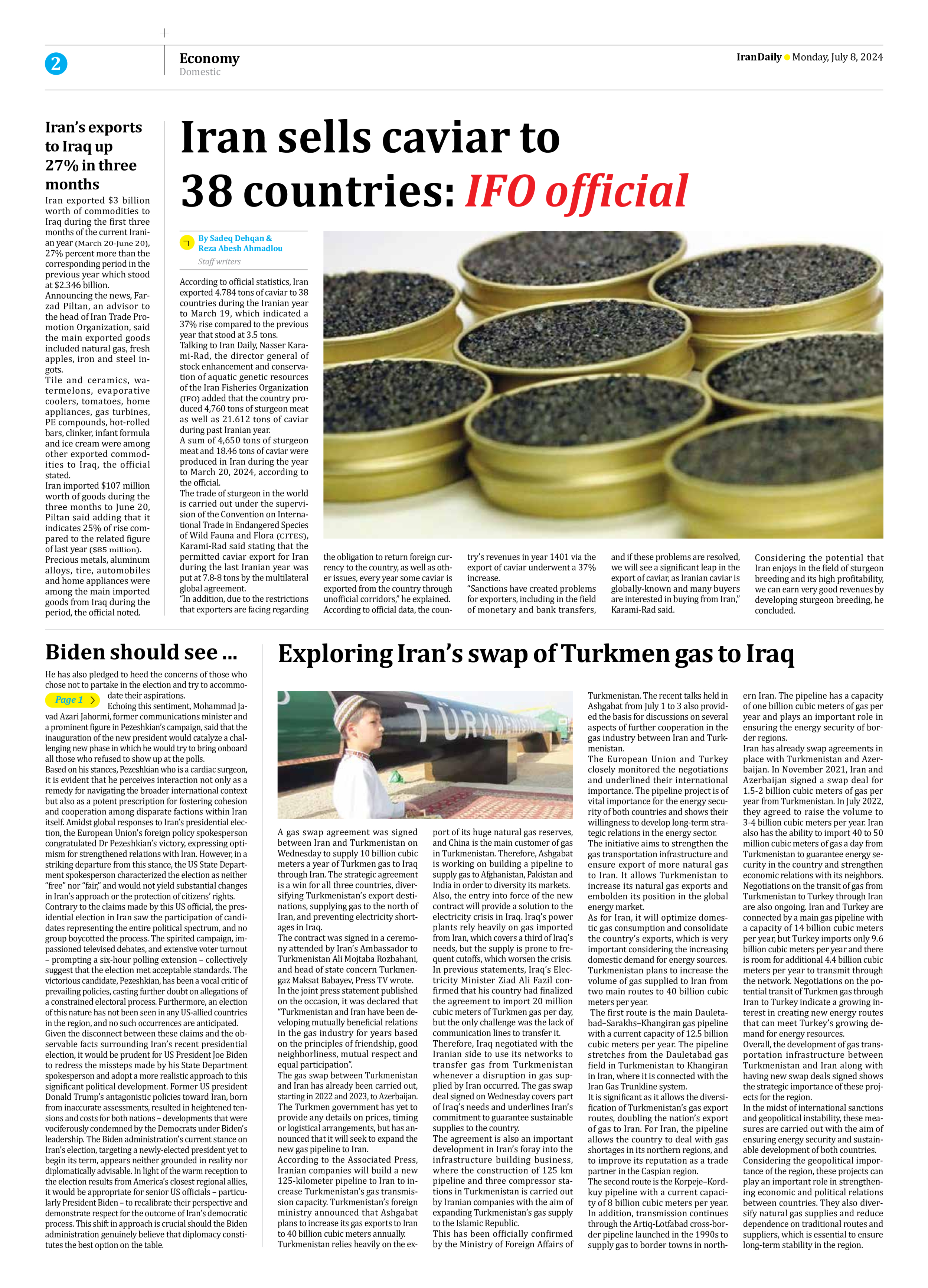
Biden should see ...
Page 1
He has also pledged to heed the concerns of those who chose not to partake in the election and try to accommodate their aspirations.
Echoing this sentiment, Mohammad Javad Azari Jahormi, former communications minister and a prominent figure in Pezeshkian’s campaign, said that the inauguration of the new president would catalyze a challenging new phase in which he would try to bring onboard all those who refused to show up at the polls.
Based on his stances, Pezeshkian who is a cardiac surgeon, it is evident that he perceives interaction not only as a remedy for navigating the broader international context but also as a potent prescription for fostering cohesion and cooperation among disparate factions within Iran itself. Amidst global responses to Iran’s presidential election, the European Union’s foreign policy spokesperson congratulated Dr Pezeshkian’s victory, expressing optimism for strengthened relations with Iran. However, in a striking departure from this stance, the US State Department spokesperson characterized the election as neither “free” nor “fair,” and would not yield substantial changes in Iran’s approach or the protection of citizens’ rights.
Contrary to the claims made by this US official, the presidential election in Iran saw the participation of candidates representing the entire political spectrum, and no group boycotted the process. The spirited campaign, impassioned televised debates, and extensive voter turnout – prompting a six-hour polling extension – collectively suggest that the election met acceptable standards. The victorious candidate, Pezeshkian, has been a vocal critic of prevailing policies, casting further doubt on allegations of a constrained electoral process. Furthermore, an election of this nature has not been seen in any US-allied countries in the region, and no such occurrences are anticipated.
Given the disconnect between these claims and the observable facts surrounding Iran’s recent presidential election, it would be prudent for US President Joe Biden to redress the missteps made by his State Department spokesperson and adopt a more realistic approach to this significant political development. Former US president Donald Trump’s antagonistic policies toward Iran, born from inaccurate assessments, resulted in heightened tensions and costs for both nations – developments that were vociferously condemned by the Democrats under Biden’s leadership. The Biden administration’s current stance on Iran’s election, targeting a newly-elected president yet to begin its term, appears neither grounded in reality nor diplomatically advisable. In light of the warm reception to the election results from America’s closest regional allies, it would be appropriate for senior US officials – particularly President Biden – to recalibrate their perspective and demonstrate respect for the outcome of Iran’s democratic process. This shift in approach is crucial should the Biden administration genuinely believe that diplomacy constitutes the best option on the table.







